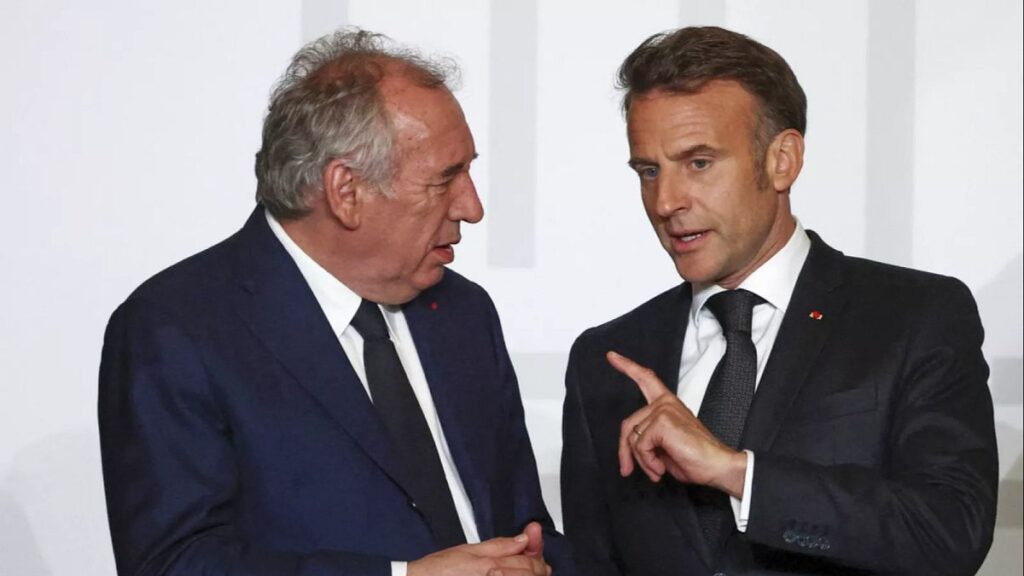French Prime Minister François Bayrou has floated the idea of holding a referendum on France’s 2026 budget to slash the country’s ailing public deficit.
Bayrou said in an interview with the Journal du Dimanche that the gravity of the situation meant that it needed the express approval of the French.
“I believe the question is serious enough, with far-reaching consequences for the country’s future, that it should be put directly to the people,” he said. “I’m not ruling out any possibility.”
“It’s a comprehensive plan I want to submit. It will demand efforts from everybody, and given its scale, it cannot succeed unless the French people support it,” he added.
“Without that approval, it won’t succeed.”
The French government hopes to reduce its 2026 budget by €40 billion, mostly by curbing public spending rather than bringing in new taxes. It hopes that doing so will help to bring France’s public deficit to under 3% of its GDP, in accordance with European fiscal rules.
Opposition parties have already threatened to hold a vote of no-confidence against Bayrou’s government over next year’s potential budget plans, against a backdrop of successive prime ministers who have faced serious backlash and anger over their own budgets in recent years.
Politicians across the political spectrum have voiced their disdain over Bayrou’s hypothetical referendum.
Laurent Wauquiez, of the right-wing Les Républicains, accused the prime minister of “procrastinating”, while Eric Coquerel, an MP from the left-wing La France Insoumise party, called the plan “a technically absurd and politically questionable idea”.
“The executive cannot bypass national representation any longer,” he added.
Is it feasible for Bayrou to hold a referendum on France’s finances?
Article 11 of France’s constitution states that only the president can call a referendum on laws related to the economy, social policy, and public services if it’s suggested by the government or both houses of parliament.
So technically, it’s not something that the prime minister can do themselves.
Bayrou is aware of this, as he told the Journal du Dimanche: “The government proposes, the president decides.”
“But the key issue is whether the French support the reforms,” he added. “We have in front of us a question of huge importance, one which is not only for the technocrats and experts but which needs to be examined by each citizen.”
A source close to President Emmanuel Macron reportedly told AFP that he can’t make a decision on whether to call a referendum until a full plan is on the table.
“The prime minister mentions a plan for reforms and savings, and it’s difficult to say anything until this plan is presented,” the source reportedly said.
Nevertheless, Macron is scheduled to appear on TF1 on 13 May, with French media speculating that he might announce a referendum of some kind.
The French president previously hinted that he may call a referendum this year during his traditional New Year’s Eve speech on 31 December, in which he said he would ask citizens to decide on “decisive” topics, without specifying which ones.
Bayrou’s plan would become France’s first major referendum since 2005, when the French voted against ratifying the European Constitution.
However, Article 47 of the constitution also explicitly lays out the process for adopting France’s budget.
Specifically, it says that both the National Assembly and the Senate need to examine and vote on the Finance Bill within a strict timeline, usually of 70 days.
If this deadline isn’t met, the government can force through the budget using its controversial Article 49.3 powers.
Bayrou used these powers in February to push through his 2025 budget, which aims to reduce the public deficit to 5.4% this year, surviving two no-confidence votes in the process.
It came after his predecessor, Michel Barnier, also used Article 49.3 to bypass parliament when trying to ratify his cost-cutting budget in December, although he wasn’t as fortunate as Bayrou, and his government was toppled.
As the budget procedure is enshrined by the constitution, any attempts to hold a referendum on it would likely be met with legal challenges.
Read the full article here
